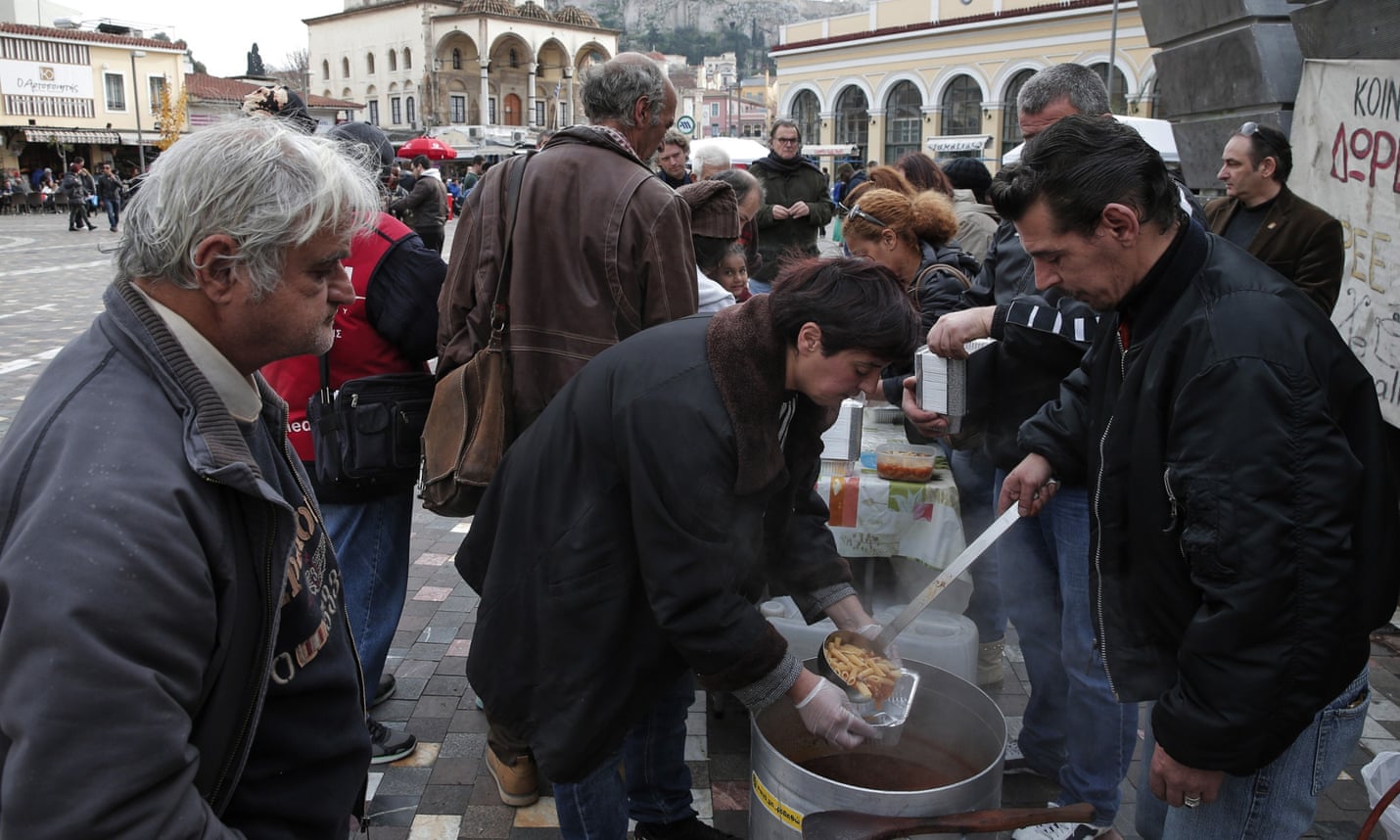
Soup kitchen volunteers serve food in Athens. Photograph: Lefteris Pitarakis/AP
By John Henley
The Guardian
Citizen-run health clinics, food centres, kitchens and legal aid hubs have sprung up to fill the gaps left by austerity – and now look set to play a bigger role under a Syriza government
“A long time ago, when I was a student,” said Olga Kesidou, sunk low in the single, somewhat clapped-out sofa of the waiting room at the Peristeri Solidarity Clinic, “I’d see myself volunteering. You know, in Africa somewhere, treating sick people in a poor developing country. I never once imagined I’d be doing it in a suburb of Athens.”
Few in Greece, even five years ago, would have imagined their recession- and austerity-ravaged country as it is now: 1.3 million people – 26% of the workforce – without a job (and most of them without benefits); wages down by 38% on 2009, pensions by 45%, GDP by a quarter; 18% of the country’s population unable to meet their food needs; 32% below the poverty line.
And just under 3.1 million people, 33% of the population, without national health insurance.
So, along with a dozen other medics including a GP, a brace of pharmacists, a paediatrician, a psychologist, an orthopaedic surgeon, a gynaecologist, a cardiologist and a dentist or two, Kesidou, an ear, nose and throat specialist, spends a day a week at this busy but cheerful clinic half an hour’s drive from central Athens, treating patients who otherwise would not get to see a doctor. Others in the group accept uninsured patients in their private surgeries.
“We couldn’t just stand by and watch so many people, whole families, being excluded from public healthcare,” Kesidou said. “In Greece now, if you’re out of work for a year you lose your social security. That’s an awful lot of people without access to what should be a basic right. If we didn’t react we couldn’t look at ourselves in the mirror. It’s solidarity.”
The Peristeri health centre is one of 40 that have sprung up around Greece since the end of mass anti-austerity protests in 2011. Using donated drugs – state medicine reimbursements have been slashed by half, so even patients with insurance are now paying 70% more for their drugs – and medical equipment (Peristeri’s ultrasound scanner came from a German aid group, its children’s vaccines from France), the 16 clinics in the Greater Athens area alone treat more than 30,000 patients a month.










Sign up on lukeunfiltered.com or to check out our store on thebestpoliticalshirts.com.